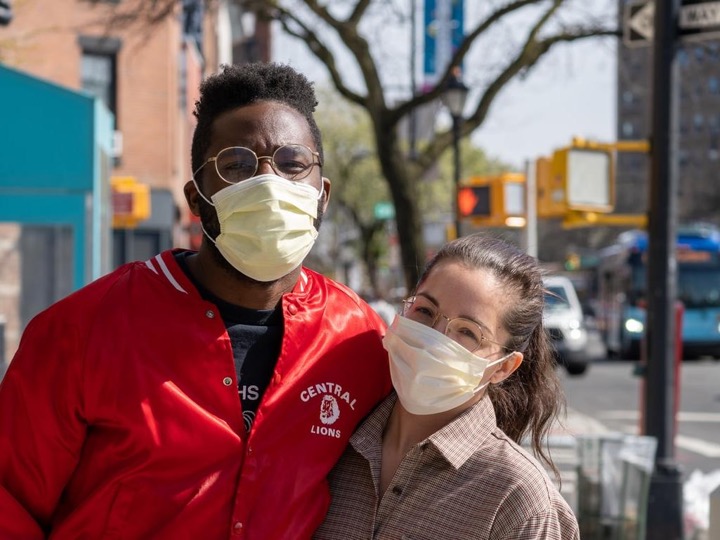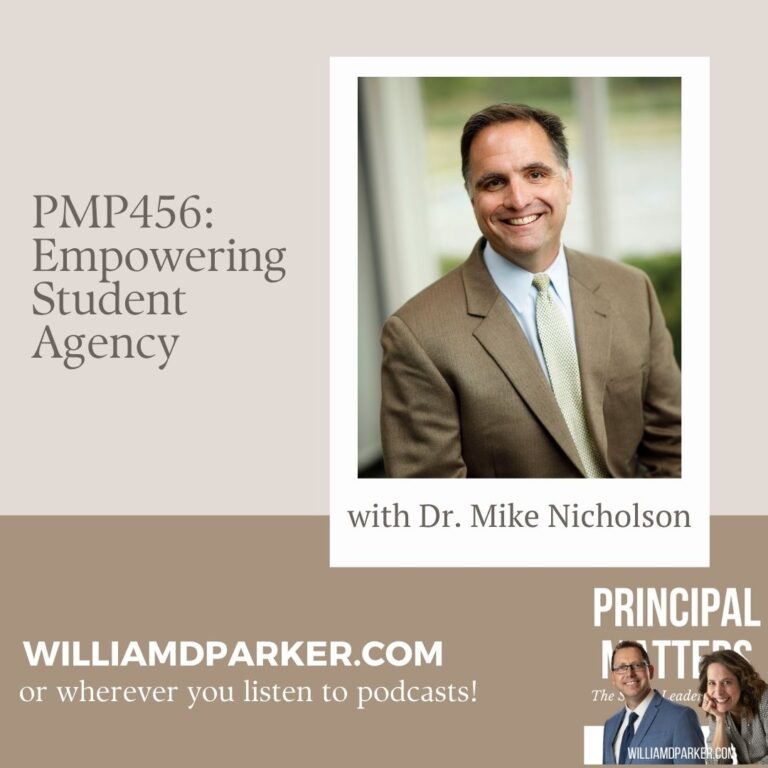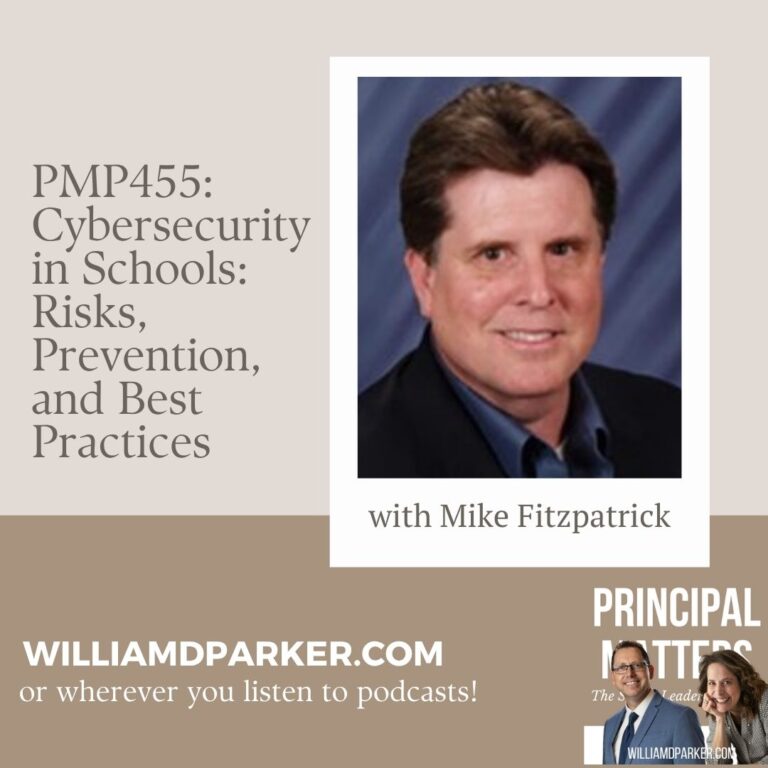Podcast: Play in new window | Download
As you are re-engaging with your school community, what lessons are you learning as you walk through this new journey with your staff, students, parents and community?

This week, Jen Schwanke joins me again to share what she’s been learning during re-opening school. Jen is the Principal of Indian Run Elementary in Dublin, Ohio. She’s also the author of You’re the Principal, Now What? and The Principal Re-Boot: 8 Ways to Revitalize Your School Leadership. Listen to this week’s episode for valuable takeaways. Here is a summary of some of our conversation:
10 Lessons for Principals to Remember:
1. This hasn’t been done before.
When things are new, they feel unstable. This is all brand new for all of us. Reassure yourselves with this knowledge and comfort yourself that it’s new for everyone else too!
2. This has revealed how much we depend on schools.
I’m not sure we realized how emotionally healthy our communities are because of our schools. Now that parents are unable to be as dependent on schools with COVID precautions, the instability makes everyone question if what they are doing this right. We need to give each other a lot of grace during these days.
3. As people re-connect, principals are rediscovering their purpose.
National surveys showed an increased number of principals considering leaving the profession. I’m curious if that sentiment has changed now that principals are reengaging with teachers, students and parents. When we are not connecting with those whom we are serving, we lose our purpose. Now we’re re-connecting.
4. It’s all about keeping your students safe while providing them the opportunity to learn.
At the end of the day, the question is not what do I prefer. The question is how can I still reconnect with the purpose of my leadership: serving students.
5. Principals need to be the ones bringing others back to calm and rationality – poking holes in the outrage around us.
We are living in an age of outrage before rationality and empathy. When others have a knee-jerk reaction to become angry, it should remind principals that others do not need to hear our ranting. Leaders have a different purpose: bring people back to compassion and calm and civility. At the end of the day, outrage is not productive. Just because we do not agree does not mean someone is always right and someone is always wrong.
6. Do not forget the promises we made about race relations and equity.
These are still important conversations where students need safe places to learn how to talk with civility. Also, think about how you will lead during a time when teachers may be introducing topics that were front and center during the pandemic. For instance, in race relations, as teachers may be introducing content or books that raise these issues, go back to your board policies and previous practices that guide the curriculum or books teachers use in classrooms. Principals do what you always do in these challenges: focus on instruction, standards and intent of lessons.
7. Communication is more important than ever.
It is exhausting but it pays big dividends on the back end. Everyone needs to know what you know when it comes to processes and protocols. Even as you are overwhelmed with the various tools for communication, keep evolving as you find a new groove for this time. Ultimately, keep putting yourself in the shoes of your parents and community. As Jen’s son once taught her, “Just because you said it doesn’t mean I understood it.”Ask yourself, “What are the facts?” Then communication that. You’ll save yourself a lot of unnecessary words when sending school communications.
8. Know what you can control and cannot control.
Make a t-chart. Put what you control on one end and what you cannot control on the other. There can be a great deal of peace acknowledging what you cannot control. Anger and frustration cannot be what drives you. These emotions can take over and trip you up. Have the mental discipline to say, “No, I’m not going to get hung up about this.” Jen tells a great story about dealing with these emotions with competing CDC guidelines on children and playground equipment. People watch you. If you are demonstrating outrage, others will follow your lead.
9. Don’t get hung up on what you perceive as another person’s incompetence.
Principals are seeing a lot of emotions of grief with their staff, including denial and anger. But acceptance is the best posture to keep as you keep moving forward. Whatever you do, you have to stay connected to something else than this crisis. How you handle this pandemic situation cannot be what defines you.
10. Have faith in the students you are serving.
The reason this is so hard is because we (schools) are so depended upon. In reality, that is a good thing. But students are amazingly resilient. Trust them to do their best just as you are attempting to do your best.
Now It’s Your Turn
As you manage your own re-opening, keep in mind the lessons you are learning. Remember you are not in this alone. How can you continue giving others the grace and patience you’re wanting them to show you during managing difficulties? Thanks again for doing what matters! You can also stay connected with Jen Schwanke’s work at her new website: http://jenschwanke.com.


